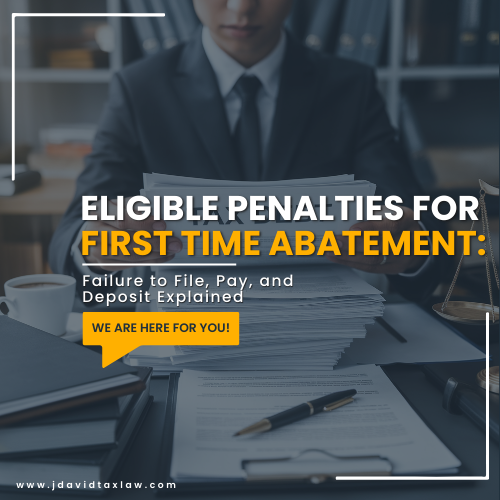Tax debt can overwhelm anyone, but understanding available resolution options can ease the burden. Individuals facing tax liabilities have two primary solutions: Installment Agreements (IA) and Offers in Compromise (OIC). This article compares these options, focusing on their processes, benefits, and suitable scenarios. The information here will help determine which might save the most based on one’s financial situation and tax debt.
Understanding IRS Installment Agreement
An Installment Agreement is a practical approach for individuals to manage their outstanding tax debt. Under this arrangement, the taxpayer agrees to make regular monthly payments to the IRS, spreading the total debt over an agreed-upon period. This allows the taxpayer to balance tax payments with other financial obligations. The payment terms are flexible and based on the individual’s monthly income and financial circumstances.
Eligibility Criteria for Installment Agreements
To qualify for an Installment Agreement, taxpayers must meet the following conditions:
Tax Liability: They must owe income tax, penalties, and interest.
Tax Returns: All past tax returns must be filed, demonstrating compliance with tax laws.
No Outstanding Previous IA: Taxpayers cannot have an existing Installment Agreement.
Current Tax Payments: They must be current with estimated tax payments and federal tax deposits if applicable.
Financial Disclosure: For larger debts, a detailed financial statement may be required to show the taxpayer’s ability to meet the installment payments.
Types of Installment Agreements
Installment Agreements come in various forms, each designed to accommodate different financial situations:
Partial Payment Installment Agreement (PPIA): This plan allows taxpayers to make monthly payments towards their tax debt that are less than the full amount owed. The IRS can reevaluate the agreement every couple of years, which could change the payment amounts based on updated financial information. This option is suitable for those who cannot make full payments due to their financial condition.
Guaranteed Installment Agreement: This agreement is available to taxpayers who owe less than $10,000 (excluding penalties and interest). Under this plan, the debt must be paid off within three years, and the taxpayer must have a history of compliance with filing and payment requirements. No detailed financial statement is required, making it a straightforward option for those who qualify.
Streamlined Installment Agreement: For debts under $50,000, taxpayers can opt for this agreement, which allows them to pay off the debt in up to 72 months. Like the Guaranteed Installment Agreement, this plan does not require a full financial disclosure.
Financial Assessment
The financial assessment for an Installment Agreement involves the IRS evaluating a taxpayer’s financial capacity using Form 433-A, “Collection Information Statement for Wage Earners and Self-Employed Individuals.” This form details the taxpayer’s income, expenses, assets, and liabilities to determine disposable income—the amount remaining after basic living expenses are met.
This assessment ensures that the monthly payment set under the agreement is manageable, allowing the taxpayer to maintain an adequate living standard while steadily reducing their tax debt.
Advantages and Limitations
Installment Agreements offer several benefits and drawbacks that taxpayers should consider:
Advantages
Flexibility in Payments: Taxpayers can negotiate the amount and schedule of payments. This helps them align their tax obligations with their financial situation and cash flow.
Less Strict Eligibility Criteria: Compared to other tax resolution options like Offers in Compromise, Installment Agreements generally have less stringent requirements, making them accessible to a broader range of taxpayers.
Limitations
Interest Accumulation: While making smaller, more manageable payments, interest and sometimes penalties continue to accrue on the unpaid balance, which can result in paying more over the life of the agreement.
Longer Duration of Debt: Since the debt is paid over time, taxpayers remain in debt longer, which can impact their financial health and creditworthiness.
Offer in Compromise
An Offer in Compromise (OIC) is a program from the IRS that allows qualified individuals to settle their tax debts for less than the full amount owed. This option is intended for taxpayers who will likely never be able to pay off the full amount of their tax debt due to their financial circumstances.
The concept behind an OIC is to reach an agreement that benefits both the taxpayer and the IRS, ensuring that the maximum amount of tax revenue is collected within a reasonable period.
Types of Offers in Compromise
Doubt as to Collectibility: This type applies when there’s doubt that the taxpayer could ever pay the full tax liability. It’s the most common type of OIC and considers the taxpayer’s income, expenses, asset equity, and future earning potential.
Doubt as to Liability: This type is suitable for situations where there is a genuine dispute about the existence or amount of the correct tax debt under the law. It does not require the IRS to evaluate the taxpayer’s financial situation.
Effective Tax Administration: This offer is for taxpayers who may be able to pay the full amount but doing so would create an economic hardship or would be inequitable because of exceptional circumstances. This type of OIC considers the taxpayer’s age, health, income potential, and other factors that might affect their financial future.
Eligibility and Evaluation
To qualify for an Offer in Compromise (OIC), the IRS conducts a thorough financial review of the taxpayer. This process involves assessing the taxpayer’s realizable equity, which reflects the cash value of their assets after deducting secured debts. The review also considers any financial hardships that impact the taxpayer’s ability to cover basic living expenses. Special circumstances, such as health problems or other personal factors, are also evaluated.
The key part of this evaluation is the calculation of the Reasonable Collection Potential (RCP). The RCP is an estimate of the maximum amount the IRS expects to collect from the taxpayer. It includes projections of future income, adjusted for necessary living costs, and the value of any assets that could be sold for cash, minus outstanding debts.
Application Process for an Offer in Compromise
To apply for an Offer in Compromise (OIC), taxpayers must follow a structured process, outlined here in step-by-step detail:
Gather Documentation: Collect all necessary financial documents that provide a clear picture of your financial situation. This includes bank statements, pay stubs, property valuations, and records of expenses.
Complete the Required Forms:
Form 656-B, Offer in Compromise Booklet: This form outlines the proposal for how much the taxpayer can pay and why the offer should be considered.
Form 433-A, Collection Information Statement for Wage Earners and Self-Employed Individuals: This form provides detailed information about the taxpayer’s income, debts, living expenses, and assets.
Submit Initial Payment: Along with the application, taxpayers must submit an initial payment. The type of payment depends on the chosen payment option outlined in Form 656-B:
Lump Sum Cash Offer: Pay 20% of the total offer amount with your application. If accepted, pay the remaining balance within a five-year period.
Periodic Payment Offer: Start with the first installment of the proposed payment plan.
Pay Application Fee: A non-refundable application fee is usually required unless the taxpayer qualifies as a low-income taxpayer or is submitting a Doubt as to Liability OIC. The fee must be paid with the application to process the OIC.
IRS Review: The IRS will review the application, assessing the Reasonable Collection Potential and confirming compliance with tax laws. This review determines whether the OIC is in the best interest of both the taxpayer and the IRS.
Response from the IRS: If the IRS accepts the offer, the taxpayer must meet the terms outlined in the acceptance letter, including keeping up with all tax obligations and payments. If the offer is rejected, the taxpayer has the right to appeal the decision.
Advantages and Limitations of an Offer in Compromise
Advantages
Significant Reduction in Tax Debt: An Offer in Compromise can lower the total amount owed, often to a fraction of the original debt, providing financial relief.
Final Resolution: Once an OIC is accepted and the agreed amount is paid, the remaining tax debt is forgiven, offering a clean slate to taxpayers.
Limitations
Strict Eligibility: Qualifying for an OIC is challenging as it requires proving severe financial hardship or other special circumstances, making it inaccessible for many taxpayers.
Requires ongoing Compliance: Settling tax debt for less than the amount owed requires future compliance and not owing for the next 5 years otherwise it could default the Offer in Compromise and that tax debt comes back.
Choosing Between IA and OIC
Installment Agreements are best suited for taxpayers who can handle a steady payment plan but may not be able to settle their full tax liability immediately. This option is ideal for those with a consistent monthly income and can meet the IRS’s criteria for regular payments without compromising their basic living expenses.
On the other hand, an Offer in Compromise is a preferable choice for taxpayers facing extreme financial difficulties that make paying the full amount of tax liability unrealistic. This option is suited for individuals who can prove that paying the total tax debt would create significant economic hardship. The OIC is beneficial for those with minimal disposable income and assets, as it can reduce the amount owed and provide a fresh financial start.
Conclusion
Choosing the right tax debt resolution strategy depends on individual financial situations. Each option offers its benefits and limitations, designed to cater to varying degrees of financial distress.
It is crucial to consult with a tax professional who can provide tailored advice based on an in-depth understanding of your financial circumstances. Tax attorneys can J. David Tax Law have extensive experience that can guide you through the application process to guarantee favorable outcomes.




















